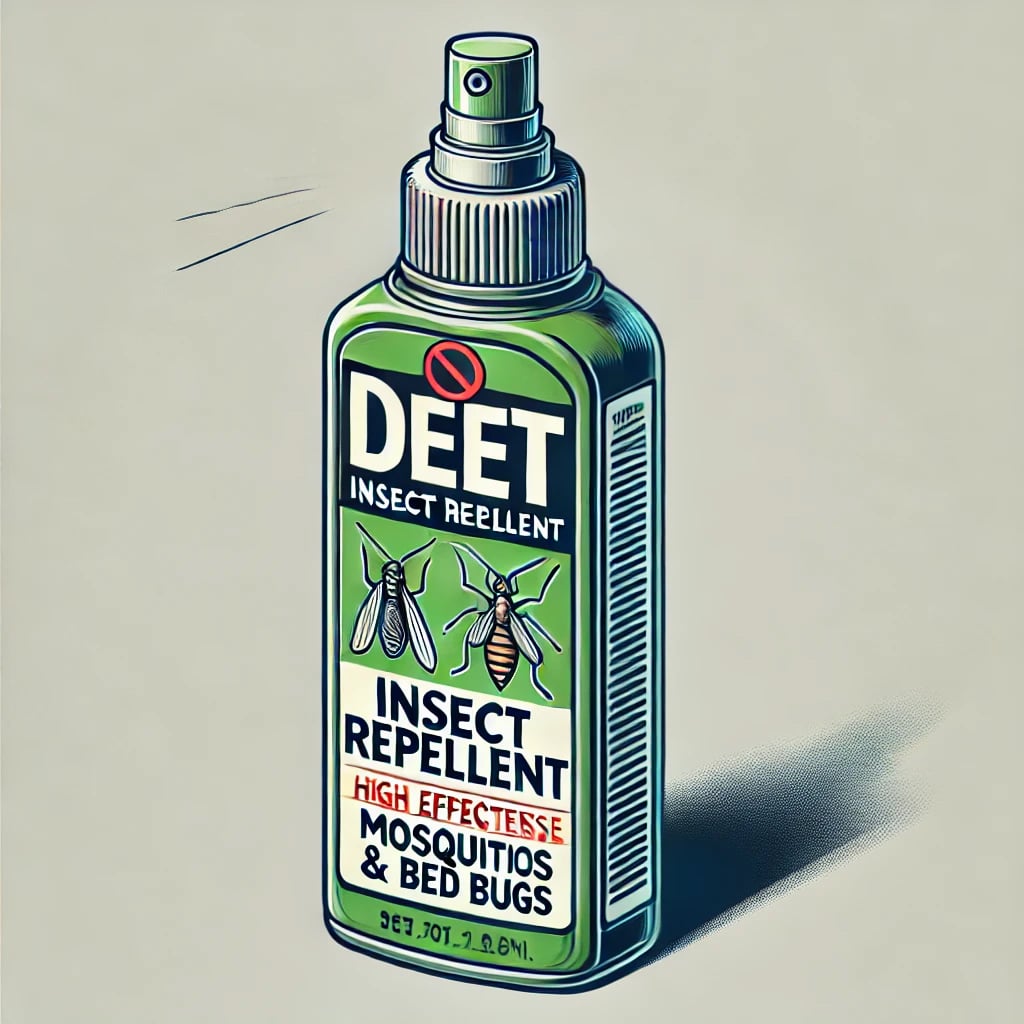
In the article
If you’re like most people dealing with bed bugs, you’re probably asking, “What can I put on my body to prevent bed bug bites?” It’s a frustrating problem, and figuring out what actually works can be a bit of a journey. Here’s a breakdown of natural remedies, commercial products, DIY solutions, and some extra tips on what you can put on your body to stay bite-free.
Natural Remedies
What Can I Put on My Body to Prevent Bed Bug Bites?

lavender oil repels bed bugs
Starting with natural options, here’s what you can put on your body to prevent bed bug bites using essential oils:
- Tea Tree Oil: Known for its strong, distinct scent that bed bugs don’t like.
- Lavender Oil: A classic, lavender not only smells great but also acts as a repellent.
- Peppermint Oil: This oil can be effective at keeping bed bugs at a distance.
- Eucalyptus Oil: Known to both repel bed bugs and soothe any bites you already have.
Using these oils directly on your skin can help create a natural barrier. So, if you’re wondering, “What can I put on my body to prevent bed bug bites?” these oils might be a solid first step.
Commercial Products:
What Can I Put on My Body to Prevent Bed Bug Bites?
Commercial products often provide stronger, longer-lasting protection. When searching for what can I put on my body to prevent bed bug bites, look for products that contain proven ingredients like DEET or picaridin.
- Insect Repellent Creams and Sprays: DEET and picaridin-based repellents, often used for mosquitoes, also work for bed bugs.
- Specialized Bed Bug Repellents: Some products claim to specifically target bed bugs, though reviews vary.
When people search, “What can I put on my body to prevent bed bug bites?” they often turn to commercial options, especially when traveling. Just remember to check product reviews and instructions.
DIY Bed Bug Repellent Recipes
If you’re more of a DIY person, you might want to know what can I put on my body to prevent bed bug bites using items already at home. Here’s a simple recipe that can work:
- Water and Essential Oils: Combine water with a few drops of lavender or tea tree oil, and spray it lightly on exposed skin.
- Apple Cider Vinegar and Peppermint Oil: Apple cider vinegar with a few drops of peppermint oil can create a mild DIY repellent.
These DIY options can be effective, but they’re often not as long-lasting. They might be best if you need something quick or just want an extra layer of defense.
Duration of Protection
How Long Does What I Put on My Body to Prevent Bed Bug Bites Actually Last?
When choosing what can I put on my body to prevent bed bug bites, the duration of protection matters. Here’s a breakdown:
- Essential Oils: Typically lasts 2-3 hours before needing a reapplication.
- DEET-based Repellents: Up to 8 hours of protection.
- Picaridin Sprays: Around 6 hours of coverage.

What Can I Put on My Body to Prevent Bed Bug Bites? DEET Lasts 8 Hours
To keep bites at bay, plan to reapply as needed, especially if you’re using natural or DIY products.
Bed Bug Behavior and Skin Protection
Understanding bed bug behavior can help you choose what to put on your body to prevent bed bug bites. Consider these extra tips:
- Wear Long-Sleeved Clothing: Covering more skin reduces the areas where bed bugs can bite.
- Use Light-Coloured Fabrics: Bed bugs are easier to spot on light clothing, so you can catch them before they bite.
- Bed Bug Barrier System: This DIY solution not only prevents bed bug bites but offers long-term relief. Using the Bed Bug Barrier Isolation System stops bed bugs from reaching your body at all, so you can sleep soundly.
Final Thoughts on What Can I Put on My Body to Prevent Bed Bug Bites
When it comes down to it, what can I put on my body to prevent bed bug bites? From essential oils to commercial sprays, there are options, but they’re often short-term. For those looking to prevent bed bug bites in the long run, pairing these products with a barrier system like the Bed Bug Barrier can provide a real solution.
Next time you’re wondering, “What can I put on my body to prevent bed bug bites?” remember that layering these bed bug solutions might be the key to a bite-free night.
Frequently Asked Questions
- Are Bed Bug Bites Contagious?
No, bed bug bites aren’t contagious. Bed bugs don’t transmit from person to person through bites, so if you’re bitten, you won’t “spread” bites to anyone else. Bed bugs only spread by moving from one place to another, like on luggage, furniture, or clothing.
The only thing that might appear contagious is if two people sleep in the same infested area; they’ll both likely get bitten. But the bites aren’t contagious like a rash or infection. - Will Bed Bug Bites Scar Me?
Bed bug bites can leave scars, but it depends on your skin type and how you treat the bites. Here’s why scars can happen:
Scratching: Scratching bites breaks the skin, increasing the risk of scarring, infection, or leaving darker marks.
Skin Sensitivity: Some people’s skin reacts more to bites, leaving marks that can last longer, sometimes turning into scars.
To prevent scarring, avoid scratching and use creams that reduce inflammation and speed up healing. Aloe vera gel, hydrocortisone cream, and other soothing treatments can help. - Why Do Bed Bugs Bite?
Bed bugs bite because they need blood to survive and reproduce. Unlike mosquitoes, they rely solely on blood as their food source, feeding on humans or other warm-blooded animals to get the nutrients they need. Attracted by warmth and carbon dioxide from our breath, bed bugs are drawn to us while we sleep, typically emerging at night. Initially, their bites are painless due to a mild anesthetic they inject to avoid detection, but as they continue to feed, they leave small red welts that often itch and cause discomfort.
Are You Looking for an Organic DIY Treatment?
Watch Our DIY Treatment Video For An Ensemble Bed
Watch Our DIY Treatment Video For A Bed with Slats
If you have enjoyed this blog, then you might like to read about the bed bug life cycle.



Leave a Reply